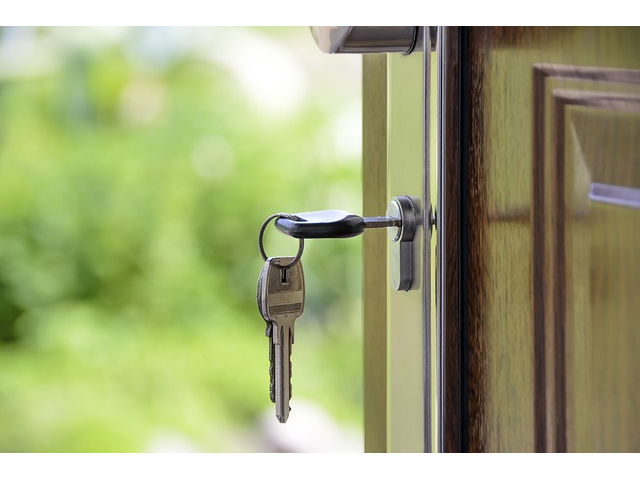Categories more
- Adventures (17)
- Arts / Collectables (15)
- Automotive (37)
- Aviation (11)
- Bath, Body, & Health (77)
- Children (6)
- Cigars / Spirits (32)
- Cuisine (16)
- Design/Architecture (22)
- Electronics (13)
- Entertainment (4)
- Event Planning (5)
- Fashion (46)
- Finance (9)
- Gifts / Misc (6)
- Home Decor (45)
- Jewelry (41)
- Pets (3)
- Philanthropy (1)
- Real Estate (16)
- Services (23)
- Sports / Golf (14)
- Vacation / Travel (60)
- Watches / Pens (15)
- Wines / Vines (24)
- Yachting / Boating (17)
A Step-by-Step Guide to Home Rental Contracts in LA
Published
09/26/2023Making LA Your Next Home
With its promise of infinite sunlight and opportunity, Los Angeles, a vast urban landscape wedged between the Pacific Ocean and the mountains, does not only entice dreamers and professionals worldwide but also young renters and prospective buyers. Anyone lucky enough to embark on the thrilling journey of renting a house in this historic city must understand the subtleties of a rental contract before anything else. With its numerous neighborhoods, Los Angeles has a special something and somewhere for everyone, with each district having its own charm and lifestyle. Despite the fantastic things Los Angeles has to offer, a fundamental requirement remains to navigate the complicated world of leasing agreements before considering moving there. So, here's a step-by-step guide to navigating the leasing process in this frantic city. Remember to review everything from preliminary research and property selection to lease negotiations and upkeep responsibilities to make the most of your life there.
Your Guide to Moving to LA: In Steps
- Start Your Research
When searching for homes for rent Los Angeles, it is vital to conduct thorough research before engaging in any leasing agreement. Investigate all the Los Angeles neighborhoods to see which fits your lifestyle, budget, and commute needs best. For those open to renting with roommates in Los Angeles, this approach can also significantly reduce costs, making it easier to secure housing in a desirable area. Also, remember to gain an in-depth understanding of the average rental rate in the area you want to live in and be prepared for fluctuations. This preliminary research will reassure you and help you set acceptable expectations and narrow your options. - Property Viewing and Selection
After deciding which neighborhood you want to live in, go to property viewings. Arrive time, take notes, and ask plenty of questions about the property to ensure you have all the information. Taking photos of the property during the viewing is also a good idea to document its condition, size, and general feel. When you find a property more appealing to your style and requirements, contact the landlord or property manager to express interest. - Application Process
Most Los Angeles landlords will want you to complete a rental application for security precautions. This application frequently requests personal information, rental history, work data, and references. Prepare to provide accurate and complete information to increase your chances of renting approval. - Credit Check and Background Screening
Landlords often proceed with credit and background checks as part of the application process to ensure that the future tenant has finances. Your credit score and rental history determine whether your application is approved or denied. Check your credit report in advance and correct any problems or concerns. - Review the Rental Agreement
If or when your rental application is approved, the landlord will provide you with a rental agreement, also known as a lease. This agreement contains all aspects of your tenancy, including the monthly rent, security deposit, lease period, property rules and regulations, and even whether they allow pets. Examine the lease carefully and ask any questions you may have before signing it. - Negotiate Terms
Don't hesitate to talk with the landlord if you are displeased or concerned about any lease rules. Security deposit amounts, pet policies, and maintenance requirements are often typical bargaining points. In preparation for negotiations, make sure that any verbal agreements struck during the discussion are documented in writing. - Understand Rent Control Laws
In Los Angeles, rent control regulations exist, affecting rent increases and eviction proceedings for individual properties. You must learn these laws and establish whether your rental is subject to rent control legislation. This information can protect you from unjust rental increases and evictions if your landlord turns out to be dishonest. - Security Deposit
Unsurprisingly, landlords in Los Angeles and most places are often allowed to demand a security deposit to cover any property damages exceeding reasonable wear and tear. Ensure you understand the terms of your security deposit return, including the deadline and any possible deductions, given that it is often a substantial amount of money, such as a month’s worth of rent. - Sign the Lease
After you’ve reviewed the lease in detail and negotiated any necessary changes, it's time to sign it. Make sure that both you and the landlord or property management sign the lease and keep a copy of all the documents. Remember, it is a legally binding contract, and you must understand and follow its terms. - Move-In Inspection
Before you move in, conduct a move-in examination of the property. Note any defects or issues in each room and document them through pictures. When you move out, this inspection will determine whether any deductions from your security deposit should be made. - Monthly Rent Payments
Importantly, don’t forget to maintain the monthly payment plan that was agreed with your landlord. Pay your rent on time to maintain a good relationship with your landlord and avoid legal issues. Rent payment requirements in Los Angeles are strict, so make sure you understand them and keep detailed records of your payments. - Maintenance and Repairs
Throughout your stay, report, document, and keep track of any maintenance or repair issues to your landlord or property management as soon as possible. Remember that it is the landlord’s job to keep the property in good condition. Keep detailed notes of all interactions and repairs that happen throughout the tenancy. - End of Lease
Have a good think about whether you want to renew, leave, or re-negotiate new terms with your landlord when your lease term comes to an end. If you intend to leave, notify your landlord as specified in your lease agreement. To maximize the return on your security deposit, don’t forget to conduct a move-out inspection and make any necessary repairs.
Conclusion
In conclusion, the Los Angeles house rental contract system might seem challenging to navigate, but with the necessary information and preparation, it becomes a much easier process. Remember that a well-understood and correctly structured rental contract protects the tenants and the landlords, ensuring the best possible renting experience in Los Angeles. Once all the steps of your move are done, enjoy your new home and — most importantly — discover what it means to be an Angelino.

















